2024 has been officially designated as the Year of Byron, 200 years after the death of the great Philhellene, Lord Byron.
The formal celebrations got underway in the Sacred City of Messolonghi (also spelt Missolonghi) where Byron passed away on 19 April 1824 during the Greek War of Independence.
The Greek Minister for Culture, Dr Lina Mendoni, inaugurated the exhibition “Byron and Greece” in the Byron Research Centre.
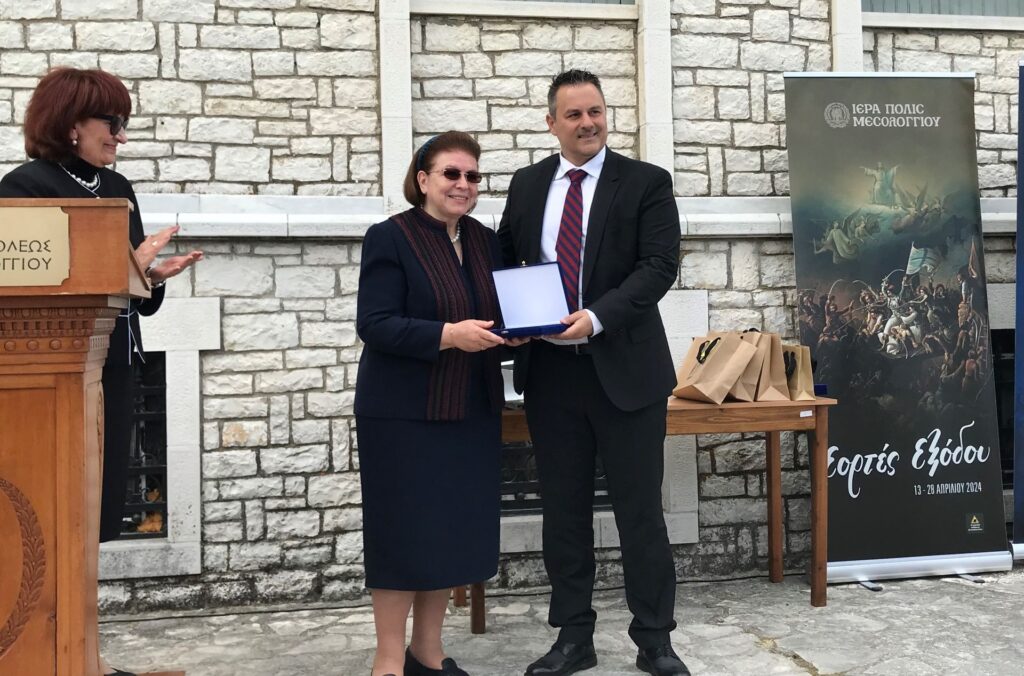
The exhibition is the result of the long-term collaboration of the Historical and Ethnological Society of Greece – National Historical Museum, which undertook the museological study, and the Messolonghi Byron Society.
The main exhibition, Byron and Greece, is dedicated to Lord Byron’s personality and his relationship with Greece and is spread over four separate units.
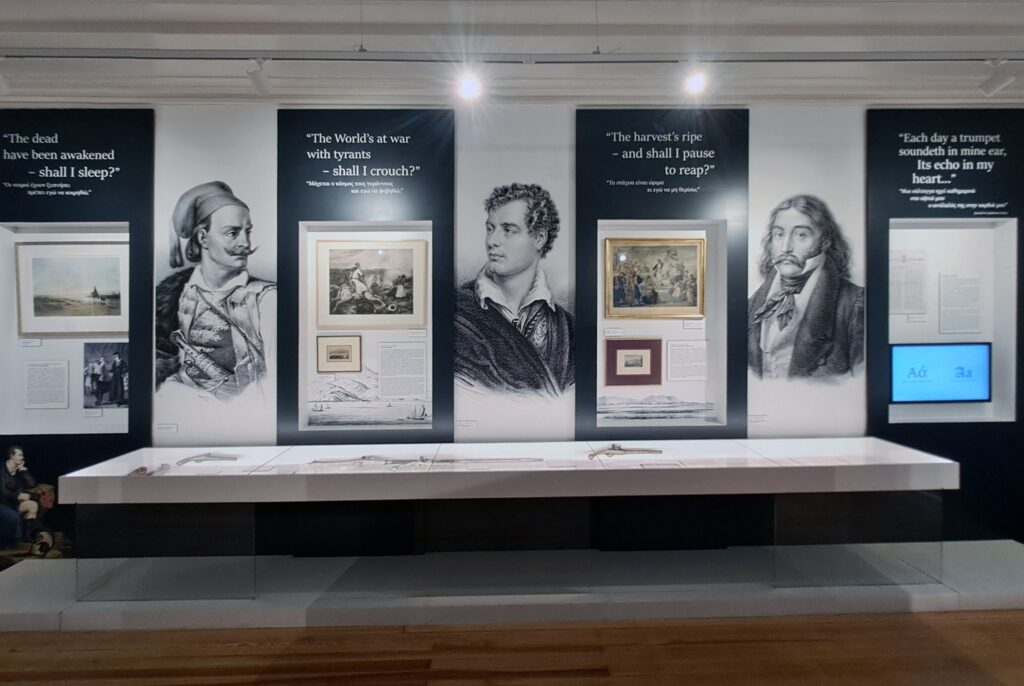
Entering the Museum, visitors are welcomed by a timeline with the main turning points in Byron’s life and work. They encounter displays focusing on the poet’s early life, his time in Britain and his first trip to Greece, the people he met and the places he visited.
Moving on, visitors witness Lord Byron’s later association with the European Philhellenic movement, his relations with the London Greek Committee, his arrival and stay in revolutionary Greece until his death.
The third exhibition unit is dedicated to the influence of Lord Byron’s poetry on the wider Romantic movement and the enhanced Philhellenic sentiment in Europe as well as the imaginary heroes he created and with whom he identified.
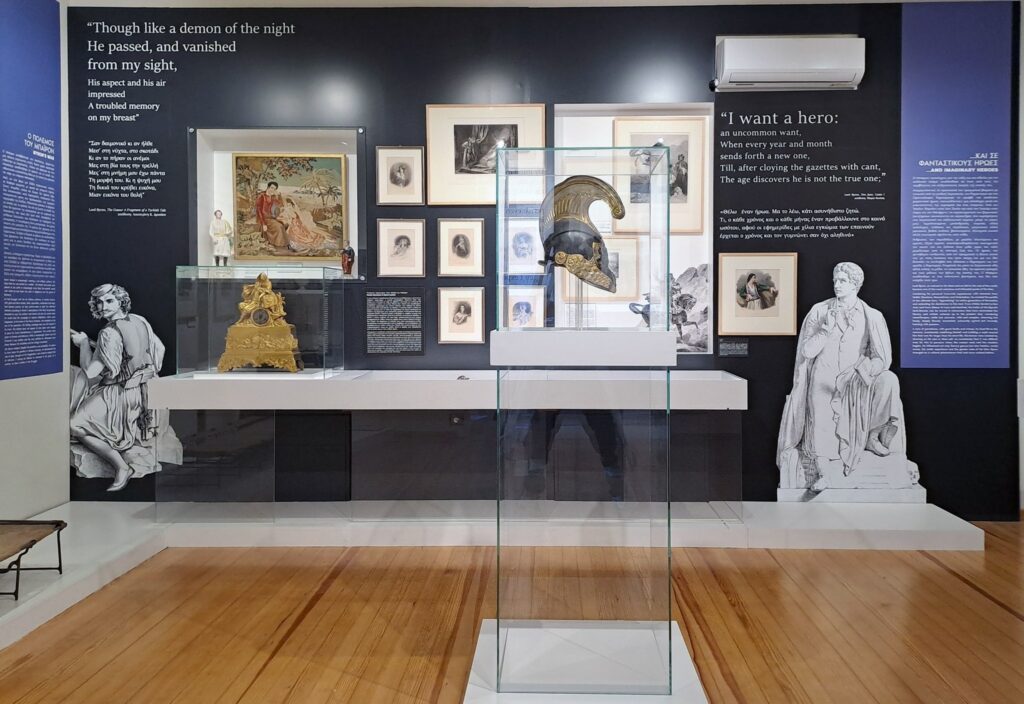
Finally, visitors enter a sacred space dedicated to the memory of Lord Byron; his influence on literature and the decorative and visual arts.
Various heirlooms, such as paintings, engravings, weapons, Philhellenic artefacts, documents, photographs, and so on from the collections of the National Historical Museum, the General State Archives, the National Library of Greece and the National Library of Scotland, are included as part of the artistic tribute to the great poet.
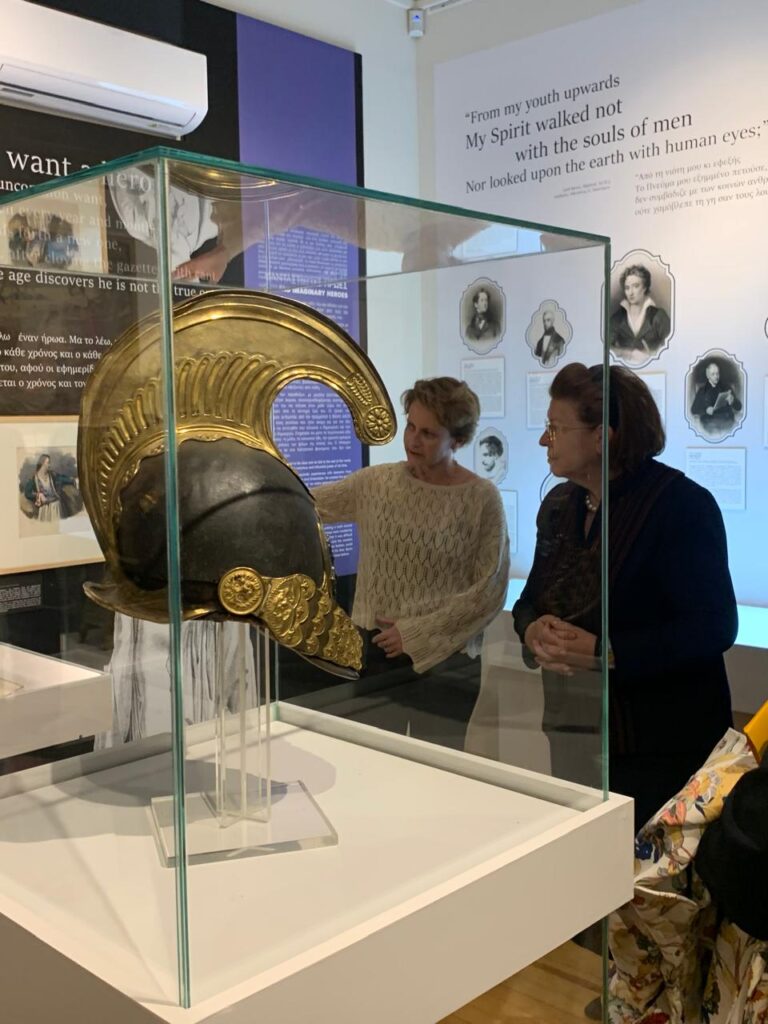
Unveiling the exhibition, Dr Mendoni was eloquent and fulsome in her praise of Lord Byron and his eternal legacy as the most prominent of the Philhellenes through his involvement in the Greek political affairs of the time. Byron's descent into Greece and his death in Messolonghi gave enormous publicity to the Greek uprising and mobilised an enlightened Europe, while the great poet’s bond and collaboration with the emerging Greek statesman, Alexandros Mavrokordatos, decisively influenced the balance of power between competing forces within a rebellious nation that was trying to form itself into a state.

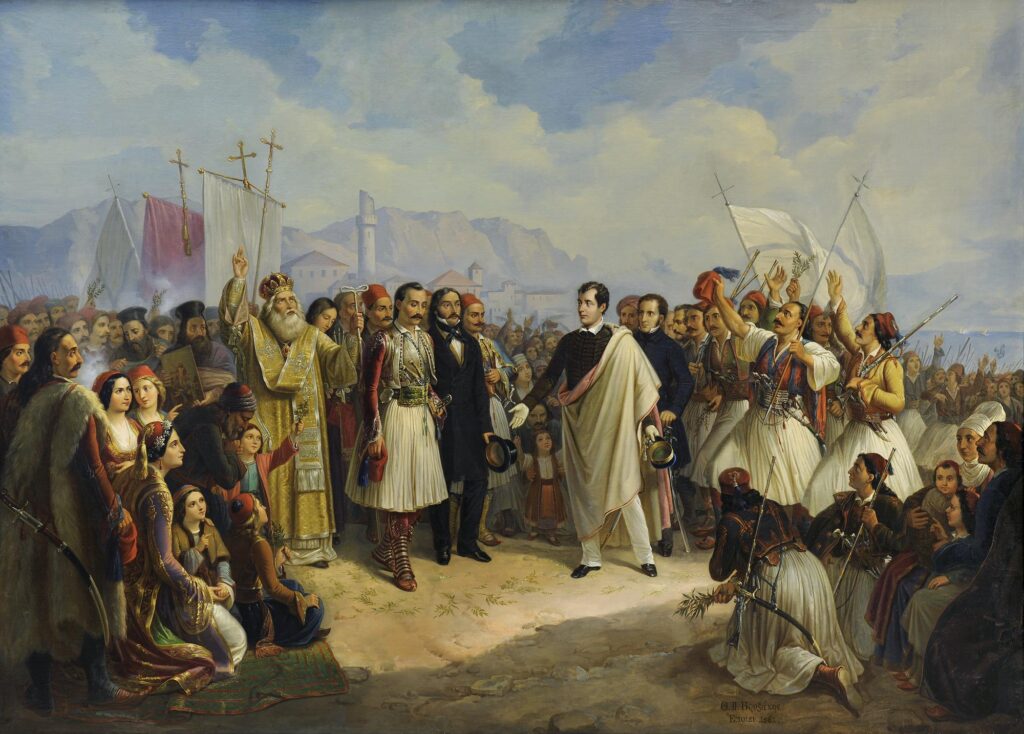
The Greek Culture Minister also remarked that Byron's untimely passing in Greece naturally tends to overshadow another very important part of his love for Greece, that of course being Byron’s reaction to Lord Elgin's violent detachment and seizure of the Parthenon Sculptures.
As Dr Mendoni expanded:
“When the issue was still little known and there were few voices against the looting of the Acropolis, Byron composed the poem The Curse of Minerva, in which the goddess Athena Pallas appears to him, on his ascent to the Acropolis, to denounce Elgin and his heinous act by telling him:
‘Scaped from the ravage of the Turk and Goth,
Thy country sends a spoiler worse than both.
Survey this vacant, violated fane;
Recount the relics torn that yet remain’
Could anyone else advocate in a better way in favour of the reunification of the Parthenon Sculptures, anyone else, when these verses, two hundred years and more now, remain powerfully alive, relevant?"
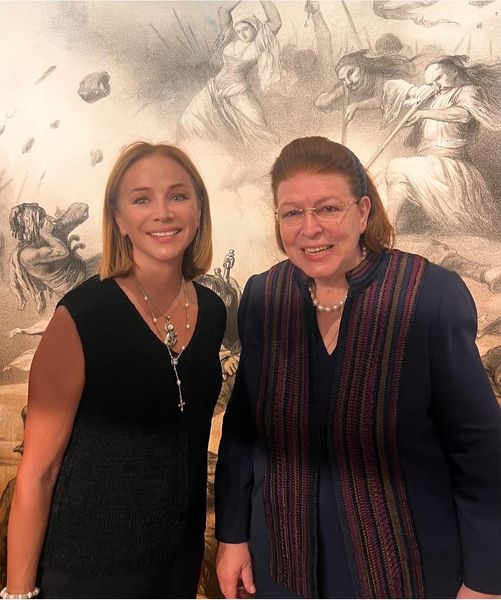
Dr Mendoni continued:
"Today's inauguration is the most appropriate moment to announce our decision to proclaim 2024, here in the Sacred City of Messolonghi, as a Year of Tribute to Lord Byron. A minimum tribute to this great Philhellene, with the unforgettable radiance of his work and action for the Greek nation. A timeless voice of justice, then for our independence, today for the just demand for the reunification of the Parthenon Sculptures".
The festivities culminated in a wonderful lyric performance with arias for Lord Byron in Messolonghi.
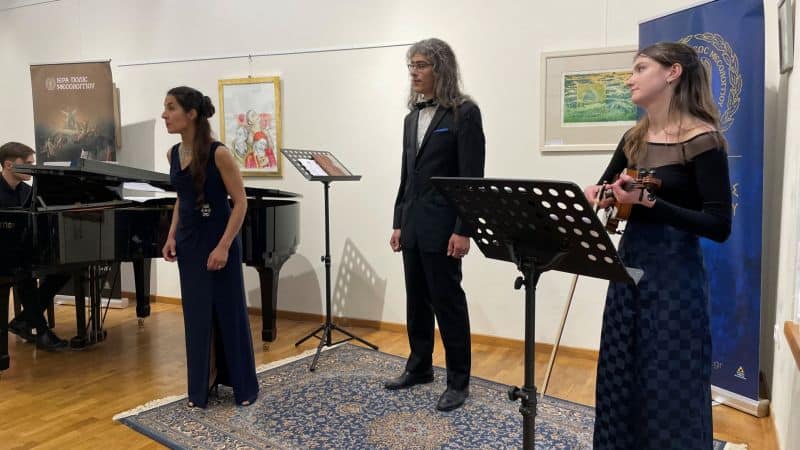
British soloists, soprano Natalia Quiroga Romero and baritone Gustavo Vita, in a world premiere performed arias from the opera "The Last Days of Byron" which had been specially commissioned by the co-organiser of the event, the Institute of Digital Archaeology (IDA) of the University of Oxford. Accompanied by pianist Marek Skowronek and violinist Ailsa Burns, they also performed arias from "Il Corsaro" by Giuseppe Verdi, based on Lord Byron's 1814 poem, The Corsair.
The performance was introduced by Roger Michel, the Executive Director of IDA who was also joined at the podium by the President of the Messolonghi Byron Society, Rodanthi Rosa Florou.
The IDA was also proud to receive the Mayor's silver medal for its contribution to the commemoration of Lord Byron in Messolonghi.
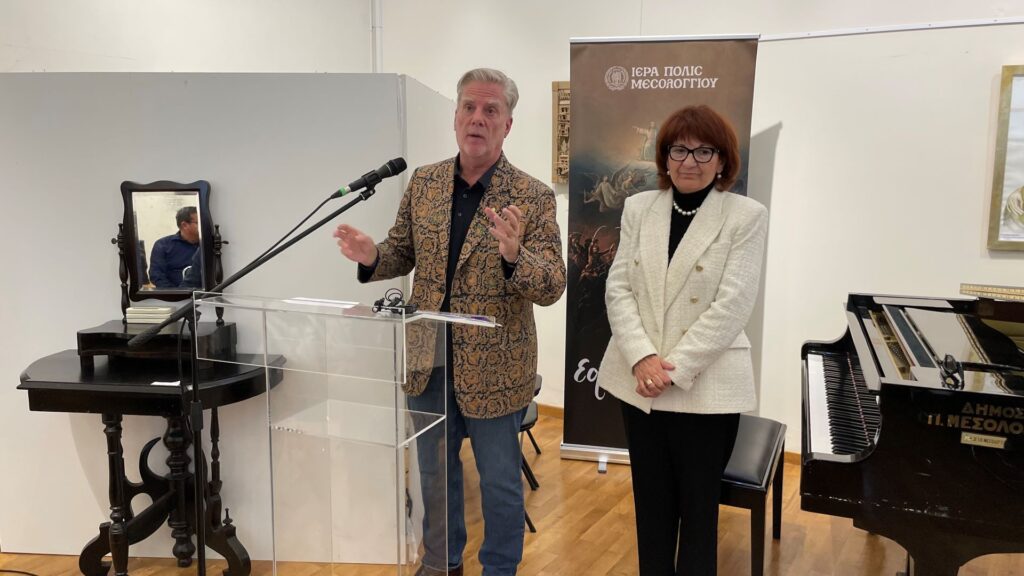
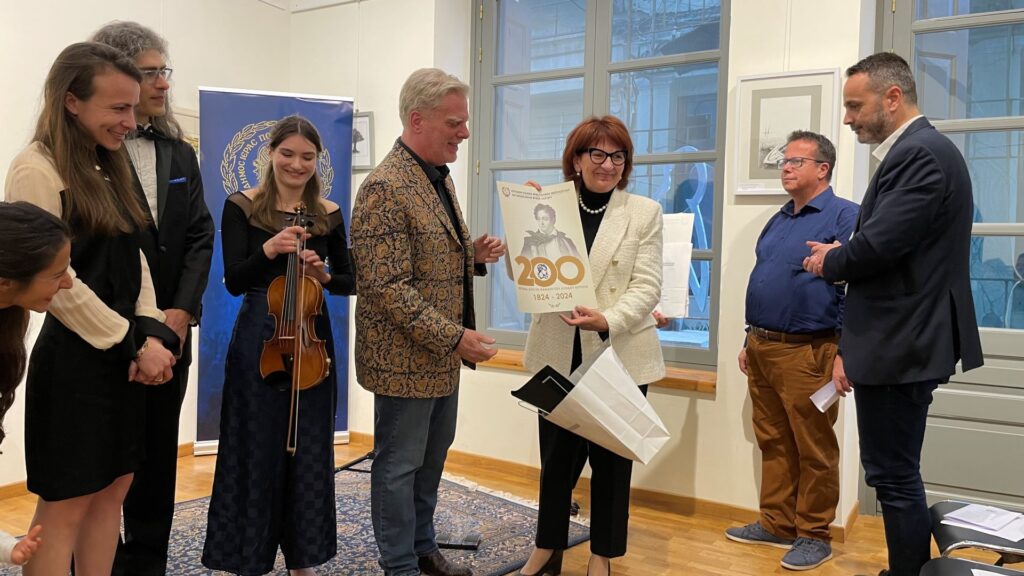
The excellent vocal performances combined with the musical and narrative part of the lyrical performance, including poetry readings by Rea Hajifanis, Vice Chair of the British Association for the Reunification of the Parthenon Sculptures, moved and delighted the audience who were lucky enough to witness an event of an exceptional standard, a fitting finale to a series of events on the 200th anniversary of the death of the great Philhellene.
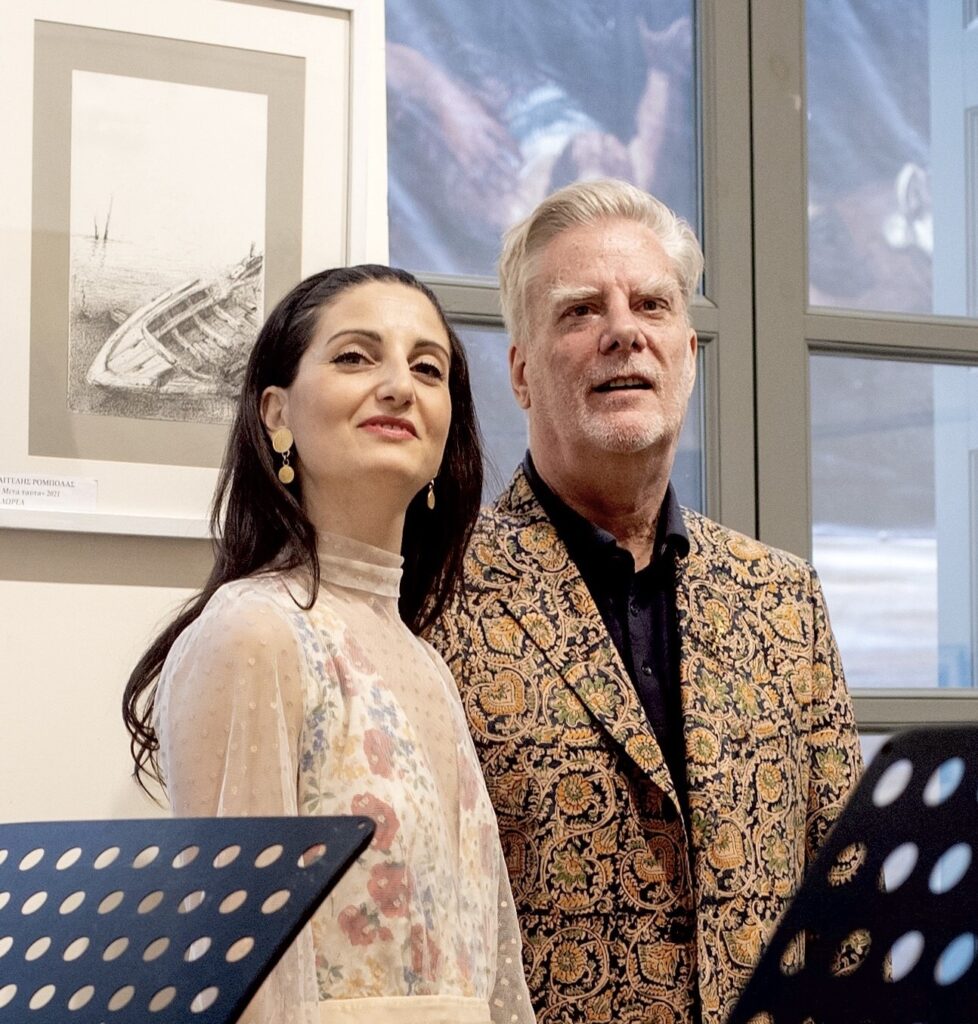
For Roger Michel it was also an excellent opportunity to discuss with Dr Mendoni the latest developments in the campaign for the reunification of the Parthenon Sculptures - in which the IDA is emerging as a major actor - as well as the Institute’s proposed unveiling at the Paris Olympics later this year.
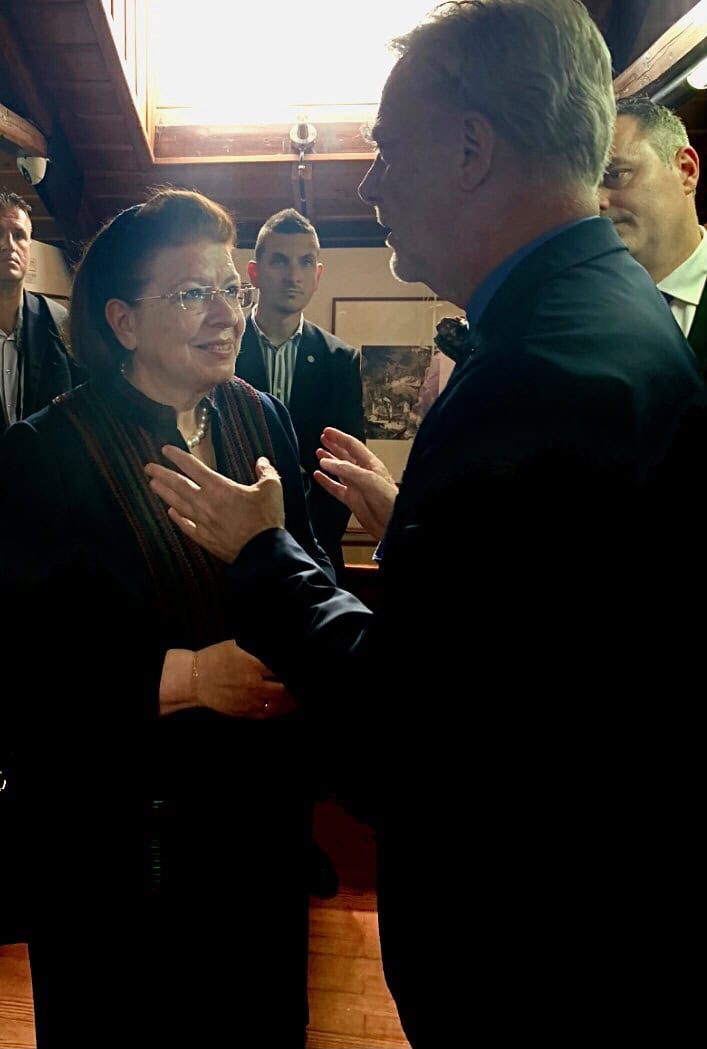
The Messolonghi Byron Society, a non-profit organization founded in 1991, is devoted to promoting scholarly and general understanding of Lord Byron’s life and poetry as well as cultivating appreciation for other idealists in the 19th-century international Philhellenic movement who, like Byron, gave their fortunes, talents, and lives for the cause of Greek Independence.
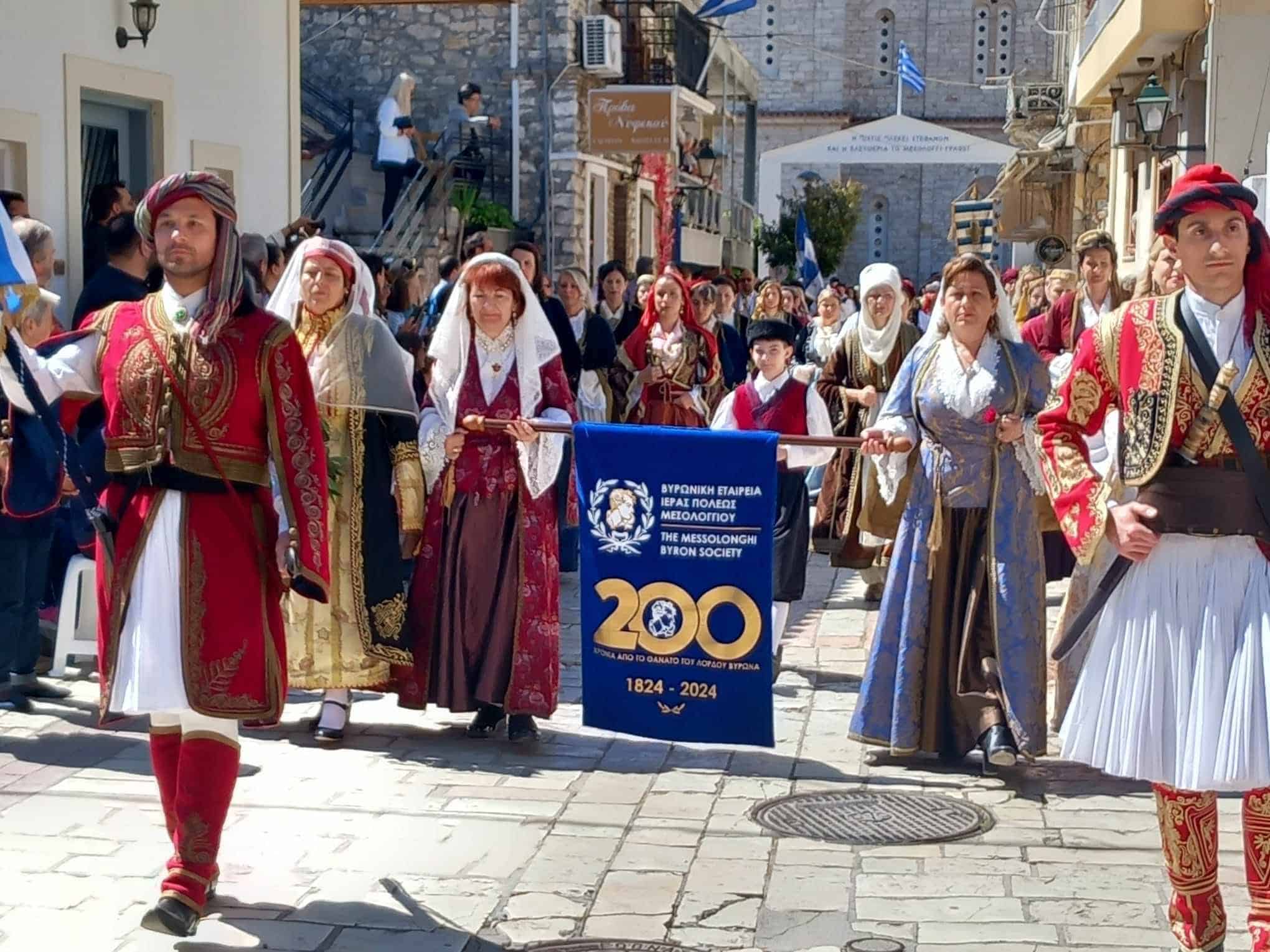
The Sacred City of Messolonghi has also been designated the site of the upcoming International Byron Conference, a scholarly commemoration of the bicentennial of Byron’s death, to be held on 1-7 July 2024.
The Byron Museum and Library is a place for learning at all levels, conferences, public lectures and research projects for Byronists, Romanticists and Philhellenes.
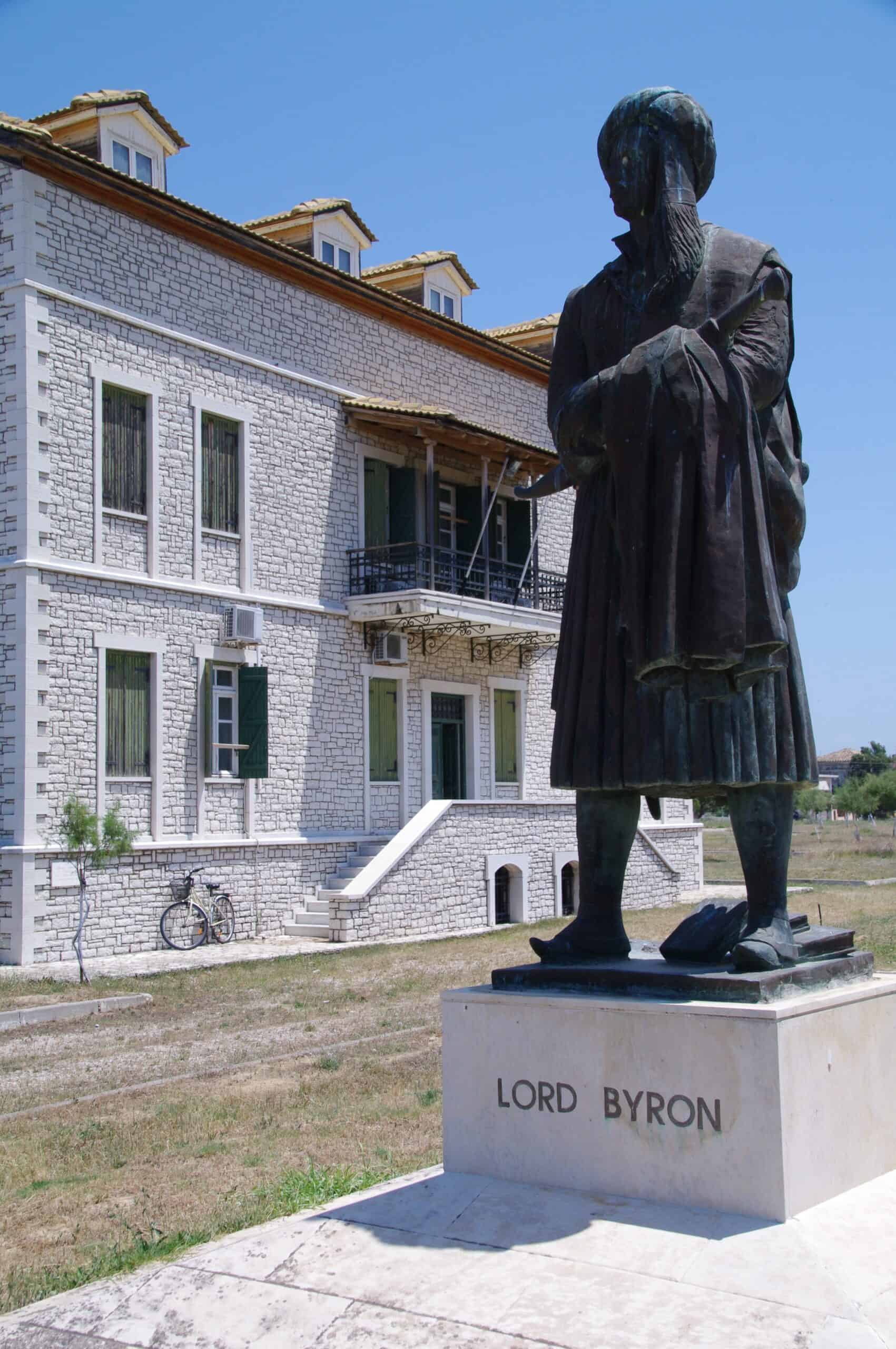
Lord Byron, a brilliant poet, writer and inspiring hero, will forever be associated with Messolonghi and the struggle for the freedom of Greece from Ottoman oppression.
It is and always will be a sacred place in our collective memory.
George Vardas is the Arts and Culture Editor and also co-founder of the International Acropolis Research Group, a niche cultural heritage consultancy with members in the UK, Greece, Austria and Australia.

